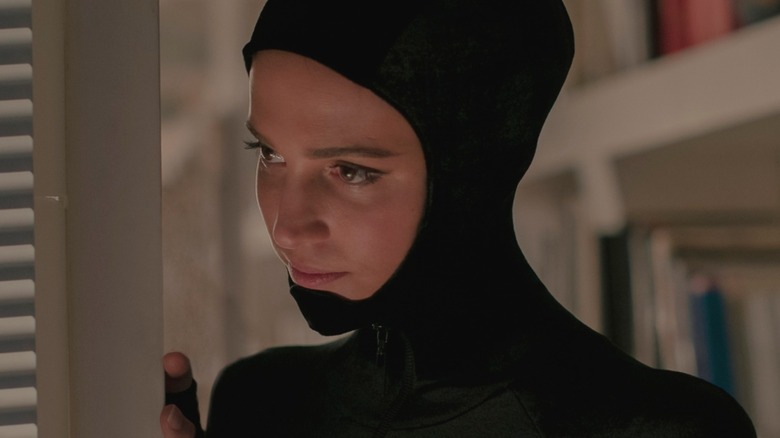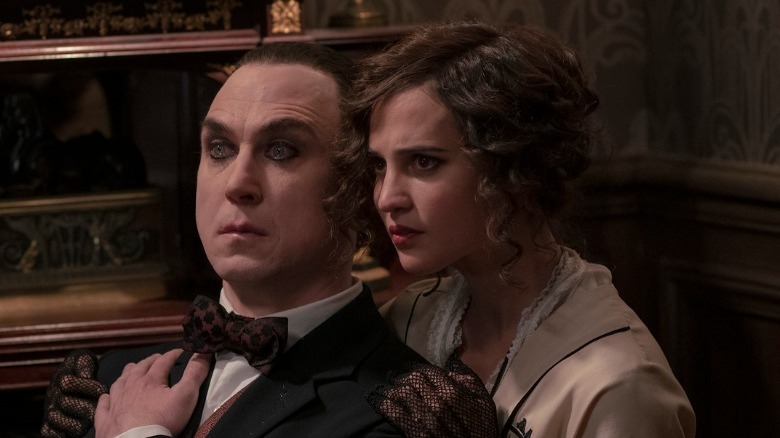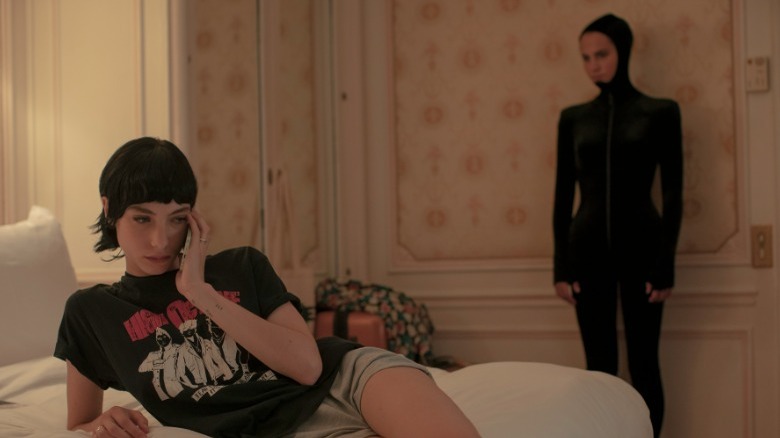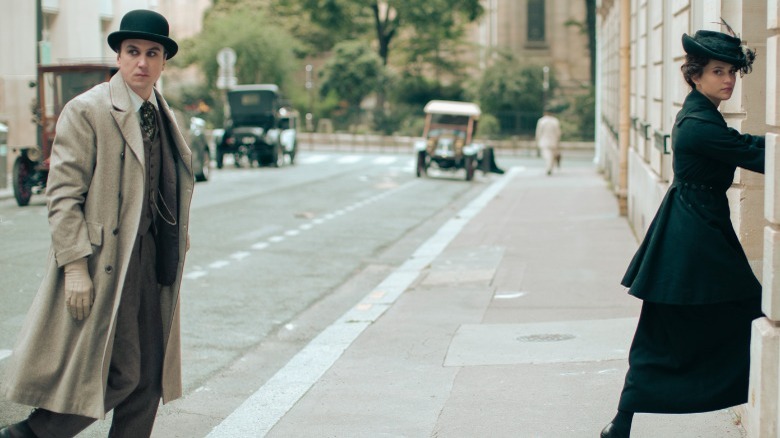The Irma Vep Miniseries Ending Explained
In 1996, French filmmaker Olivier Assayas wrote and directed what would become one of the most beguiling and poetic indie films of the '90s, "Irma Vep." The film starred Maggie Cheung who played herself acting in a fictional film in the story as the title character -– a black latex-clad spy coming to terms with the issues in her life. In 2022, the filmmaker decided to adapt his own story and film into a long-form miniseries for HBO Max, which was also titled "Irma Vep" and featured Alicia Vikander in the lead role as Mira.
The limited series became one of the best shows with a small audience in the summer of 2022 thanks to its celebration of everything illuminating about the filmmaking process. Mira's journey throughout the drama was equally as dazzling as it covered the discouragement of the acting process when studios and agents map out a performer's career. Assayas stayed relatively faithful to his own movie but fleshed out the story further to explore a wide range of thematic material about the art of illusion. Like the film, the series also ends on a somewhat confounding note, which makes it prime for an explanation because of its bewildering conclusion.
What happened at the end of Irma Vep?
The "Irma Vep" miniseries follows a similar storyline to Olivier Assayas' similarly titled 1996 feature film. Alicia Vikander plays Mira Harberg, an American actor who plays the title part in a French film that is recreating a silent movie series from the 1910s called "Les Vampires." Viewers are also treated to Hosberg's life behind the camera as she struggles to make sense of her professional and personal struggles.
The program ends in two different ways: Irma's final moments, as well as a brief monologue, are meant to add context to the proceedings. Mira simply finishes her last scene and checks out of the hotel with no voiceover or exposition used to describe her feelings. The filmmaker Rene (Vincent Macaigne) speaks about a person's need to reassess certainties in life and how love is all that is important as Mira simply returns to Hollywood to continue her acting career. This bit of dialogue adds context to why Mira left so unassumingly, but there are many more metaphors in the finale that explain the conclusion.
What is the filmmaker trying to convey with the ending of Irma Vep?
When deciphering the ending of "Irma Vep," it helps to place the symbolism of the conclusion in relation to the entire story told. Since Rene speaks about a "need to reassess the truth" as well as the importance of love above everything else in life, the events that happen in the final episode are built around thematic clues. Mira's journey over the course of the limited series is about discovering more about herself both as a person and an actor that makes a living becoming other people. The silent flashbacks offer the viewer an opportunity to experience the themes of the program through the celebration of filmmaking, where actions and facial expressions convey just as much as words if not more.
Speaking to Filmmaker Magazine in 2022, Olivier Assayas was asked if he identifies aspects of himself in the character of Rene. He observed that he was looking at Rene Vidal more as an observer in the 1996 film whereas he sees the role as a reflection of himself in the limited series. This is one of the key takeaways from the program; we all spend time rationalizing the lives of others without realizing that we eventually share more in common with the experiences of others than we may think when we are younger or inexperienced — or in the case of Mira, we remain on autopilot for years before having an epiphany about ourselves.
Alicia Vikander says the ending is about Mira's disillusionment with her career
"Irma Vep's" ending is so quiet and unassuming that it can become easily confusing. When asked about Mira's final moments in the show where she leaves the production early, Alicia Vikander told Entertainment Weekly that her character was simply exercising her own independence in the decisions that dictate how her career unfolds. Mira became disillusioned by everyone always directing her decisions. "That's why she ended up not going there, because she just couldn't define herself within whatever that project was," she continued. "That's the journey she made throughout the show."
The actor also told The A.V. Club that Mira's vanishing from the show before Rene's monologue on love also comes from a place of artistic fulfillment. Vikander commented that "Les Vampires" for Mira was a way of learning to listen to her own voice and that the production was incredibly meaningful in providing this to her. With this in mind, the recreation of the older project showed Mira how to love herself again.



